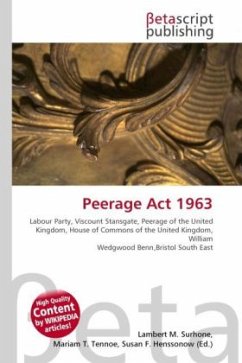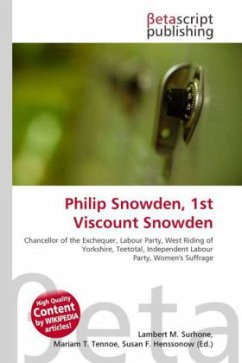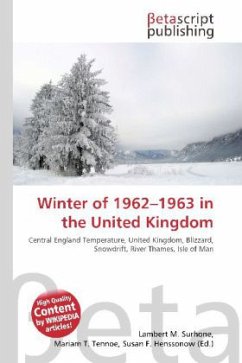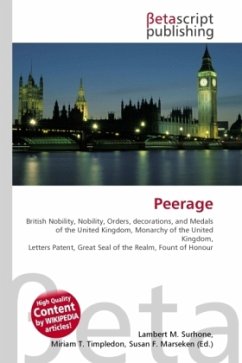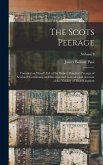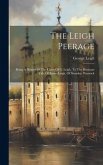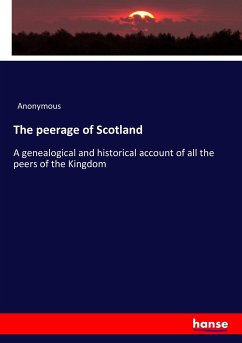High Quality Content by WIKIPEDIA articles! The Act resulted largely from the protests of one man, the Labour politician Tony Benn, then second Viscount Stansgate. Under British law at the time, peers of the United Kingdom (meeting certain qualifications, such as age) were automatically members of the House of Lords and could not sit in, or vote in elections for, the other chamber, the House of Commons. When William Wedgwood Benn, Tony Benn's father, agreed to accept the Viscountcy, he ensured that the would-be heir, his eldest son Michael, did not plan to enter the House of Commons. Within a few years of Benn's acceptance of the title, however, Michael Benn was killed in action in World War Two, and Tony Benn, as his younger brother, became the heir to the peerage. The younger Benn was elected to the House of Commons in 1950, and did not intend to leave it for the other House, so he campaigned through the 1950s for a change in the law.
Bitte wählen Sie Ihr Anliegen aus.
Rechnungen
Retourenschein anfordern
Bestellstatus
Storno

